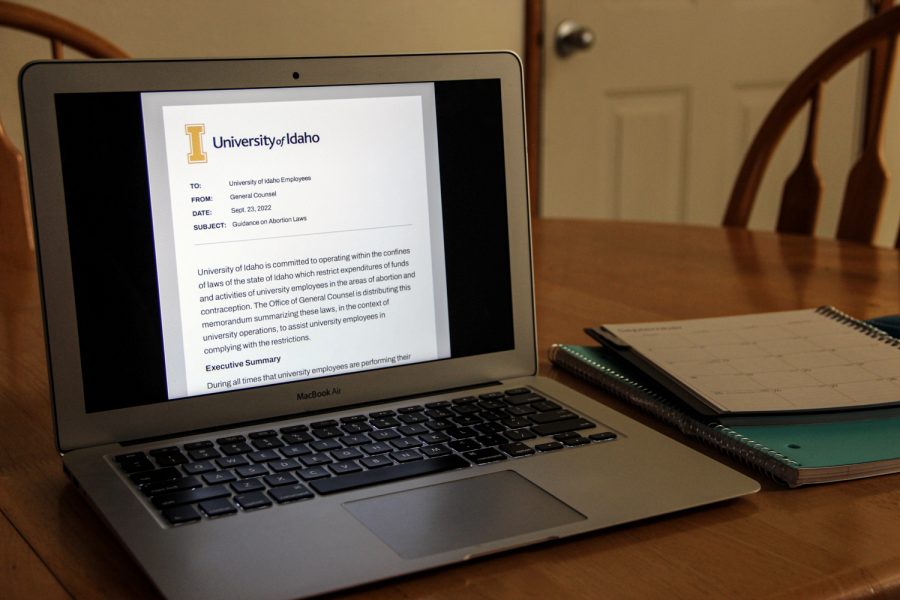University of Idaho staff make changes to Women’s Center, curriculum following memo
Employees cannot distribute emergency contraceptives
The University of Idaho said its new guidelines follow a law passed by Idaho Legislature in 2021.
October 5, 2022
University of Idaho released a memorandum on Sept. 23, restricting faculty’s ability to discuss abortion and distribute emergency contraceptives, which has caused confusion and concern following the decision.
This change has taken place in light of the law passed in 2021 by the Idaho Legislature, stating no public funds can be used in any way to promote abortion, Jodi Walker, UI’s Senior Director of Communications, wrote in an email.
“The section does not specify what is meant by promoting abortion, however, it is clear that university employees are paid with public funds,” Walker wrote. “Employees engaging in their course of work in a manner that favors abortion could be deemed as promoting abortion.”
While employees can still direct students to sources of information outside the university and neutrally discuss abortion in a classroom setting if it is relevant to course topics, they cannot use public funds for abortion referrals, counsel students in favor of an abortion or provide facilities to perform an abortion, according to the memo.
If they violate these restrictions, employees risk being convicted of a misdemeanor or felony, losing their state employment, or being permanently barred from future state employment, according to the memo.
Lysa Salsbury, UI Women’s Center director, said another change to UI’s campus as a result of the law has been the Women’s Center’s inability to distribute emergency contraception.
“We are now prohibited by law from distributing emergency contraception such as Plan B,” Salsbury said. “Condoms and birth control are still available.”
Salsbury said she has seen outrage and fear in response to the law due to its restrictive nature. Some faculty have issues with the law’s passage because it is difficult to determine what is allowed to be talked about in relation to abortion.
“Faculty who were used to having certain freedoms, those now come into question,” she said.
Richard Seamon, UI law professor, said he has seen concern from people on campus due to misunderstandings about the guidance memo, as some are worried it could be an infringement on their academic freedom.
“I think there’s been a general misunderstanding over the general council’s memo,” he said. “I wouldn’t be surprised if they gather reactions to the original guidance memo and find the need to clarify certain aspects to it.”
In order to clear up some confusion, Salsbury and about six or seven other staff members are working on an FAQ to show students and staff changes that have been made with the guidelines, she said.
“We’re hoping this will provide a lot more clarity to folks,” she said. “I’ve been doing a lot of talking with students to hope this clears things up as well.”
These recent changes will not have much of an effect on Seamon’s job, he said. However, he teaches constitutional law and had to update his class guidelines to teach students about the recent decision about abortion rights.
Some laws related to abortion in Idaho are already being challenged, so Seamon would not be surprised if there were other changes to the university’s guidelines in the future, he said. He encourages people with questions about the implications of the guidelines to contact the general council’s office.
“One of the job duties of the general council is to make sure all university employees are aware of any changes in the law that might affect what they’ve been doing,” he said.


















